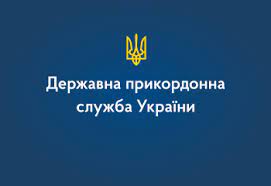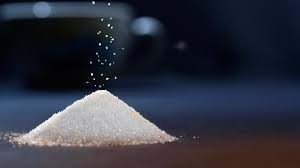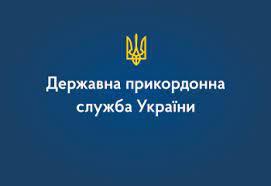
Polish protesters at 11 o’clock began blocking the movement of buses at the approach to the checkpoint (BCP) “Medika – Shegini”, the State Border Guard Service of Ukraine reports.
“At the checkpoint “Medika – Shegini” began blocking the movement of buses,” the State Border Service said in a message in its Telegram channel on Wednesday.
“According to information from Polish colleagues the restriction of bus traffic began today at about 11:10. Its organizers block traffic on the road in front of the checkpoint “Medika”, adjacent to the Ukrainian checkpoint “Shegini”,” – specifies the State Border Service.
Medyka-Shehyni, POLAND, PROTESTS, Ukrainian Border Guard Service

Polish authorities have agreed with farmers on subsidies per ton of grain and temporary closure of the border with Ukraine from April 1 for the transit of some agricultural products, polskieradio24.pl reported.
According to the newspaper, the document was signed by representatives of the protesting farmers, Agriculture Minister Czeslaw Seckerski and the ministry’s state secretary Michal Kolodziejczak.
The agreement envisages maintaining the current embargo on agricultural products from Ukraine, which has been in place since mid-September last year. It concerns in particular wheat, corn, wheat flour, rapeseed and sunflower.
In addition, the Minister of Agriculture must ask the Council of Ministers of the European Union to suspend the transit of these products through Polish territory as of April 1 this year.
Both sides in the signed document also consider it necessary to develop detailed rules for agri-food trade between Poland and Ukraine, but also note that the difficult situation in agriculture is the result of Russia’s aggression against Ukraine.
Farmers’ representatives in the agreement declare their government’s support for the changes to the Green Agreement. It is primarily about replacing the mandatory transfer to a voluntary ecosystem and simplifying other rules for farmers.
AUTHORITIES, BORDER, FARMERS, GRAIN, POLAND, transit products, UKRAINE

The European Union should think about reducing access to the European market of sugar from third countries at least by 10%, then there would be a place for Ukrainian sugar in the EU, which would not allow this market to collapse, said the director of the National Association of Sugar Beet Producers of Poland Rafal Strahota in the program “Between Brussels and Kiev” on farmer.pl.
“The European Union has opened up the market in recent years. It has signed a number of trade agreements with various third countries. I know it is difficult, but if we reduced access to the EU market by at least a dozen percent, there would be enough room for Ukrainian sugar, and at the same time it would not destroy the EU market,” he said.
The director of the industry association noted that no one in the European Union had raised this topic.
Strakhota recalled that the European Commission is developing a regulation on protective measures, which provides for the introduction of a limit on sugar imports from Ukraine, taking into account export data, which are based on 2022-2023. Taking these data, Strachota calculates that Ukraine will be allowed to supply Poland with 320,000 tons of sugar per year.
“This is too much,” he stated.
According to the National Association of Sugar Beet Producers of Poland, in 2023-2024, the structure of Poland’s sugar imports looked like this: 32% accounted for Ukraine, 23% – Brazil, 9% – Eswatini, 7% each – Mauritius and Colombia, 18% – other countries.
At the same time, Poland grew 2.34 million tons of sugar beet in 2023 by expanding the production area under it, which amounted to 265 thousand hectares. The average beet yield was about 64 tons/ha, with very large yield differences between individual regions. In Poland, more than 26,000 people grew beet last year.
“At the same time, from October to December 2023, average sugar prices in Poland fell by 12%, and when packaged in 1 kg packages, the price drop exceeded 20%,” said the director of the industry association.
Strahota expressed concern that before the Autonomous Trade Measures (ATM) come into effect in June 2024, the Polish market could face a problem due to Ukrainian sugar.
“We fear that by that time a lot of sugar may come from Ukraine. Let me remind you, the action has ended (the sugar season – IF-U) and sugar has been produced. It is in warehouses, and in fact in these warehouses there are still about 600 thousand of sugar, which can easily get to the EU,” – Strahota emphasized.
He recalled that in 2023 in Ukraine was sown about 250 thousand hectares of sugar beet, produced about 1.8 million tons of sugar. Domestic consumption is less than 1 million tons, so the export potential is 800 thousand tons.
“In the first three months of the current marketing year, about 200 thousand tons of sugar from Ukraine entered the EU,” the expert said.
The publication cited data according to which Ukraine supplied to Poland in 2021 17.777 thousand tons of sugar, in 2022 – 15.278 thousand tons, and in 2023 it reached 468.97 thousand tons.
“At stake is the fate of the extension of the EU trade liberalization with Ukraine for another year, that is, until June 2025 with the restriction of sugar imports from this country, but in this case, the average figures of 2022 and 2023, when imports of this raw material from Ukraine were huge, are taken as benchmarks,” regretted the director of the National Association of Sugar Beet Producers of Poland and added that the country asks the European Commission, the European Parliament and the European Union to use the volume of supplies for 2021-2022 to calculate the allowable sugar imports.

Polish protesters plan to resume blocking trucks in the direction of the checkpoint “Korchova-Krakovec” from March 13, the State Border Guard Service of Ukraine (SBGS) reports. “On March 13, protesters plan to resume blocking trucks in the direction of the checkpoint “Korchova-Krakovets”,” the State Border Service said in a message in the Telegram channel on Monday.
The message also states that from today from “9.00 protesters will not let trucks through the checkpoint “Ugrinov” in the direction of Poland. At the exit from Poland will be allowed 4 trucks every hour”. Earlier this was reported by the speaker of the state Border service Andrey Demchenko on the air of the national telethon.
“In the direction of checkpoints “Dorogusk-Yagodin”, “Zosin-Ustilug”, “Dolgobichiv-Ugrinov”, “Hrebene – Rava-Russkaya”, “Medica-Shegini” restriction of movement for cargo vehicles continues”, – noted in the message of the state Border service.
“The movement of passenger vehicles and buses in all directions is not limited”, – stated in the message.
As reported with reference to Demchenko, on the night of March 8-9 Polish farmers stopped blocking the direction through the checkpoint “Korchova-Krakovets”, and on it since then significantly increased the load, there also formed queues. “Over these last days we see the intensity of traffic exactly at this checkpoint… That is, the intensity there is quite high with the possibility of crossing the border in both directions. But, of course, and in this direction the queue remains: as of this morning it is about 600 trucks,” – said Demchenko.

Polish border guards have passed information to the Ukrainian side that Polish farmers plan to temporarily stop blocking traffic at the checkpoint “Krakivets” until March 13, said the speaker of the State Border Guard Service of Ukraine Andriy Demchenko.
“But whether it will be observed, whether before the 13th actually unblock the direction of the checkpoint “Krakovets” – we will see,” – said Demchenko on air telethon.
He pointed out that as of the morning of March 9, 2300 trucks are in queues at the border in all directions. The most difficult situation, according to Demchenko, opposite the checkpoint “Yagodin” and “Shegini”.
“In fact, there farmers do not let trucks traveling towards Poland through at all,” Demchenko noted.

Construction of the railway section Mostiska-Skniliv from the state border with Poland to Lviv will start this year, said Deputy Prime Minister for recovery – Minister of community development, territories and infrastructure Oleksandr Kubrakov.
“Construction of the first large section of the European gauge, Mostyska-Skniliv. We will connect our railroad with the European network. This is the first project, we will build it already this year together with European partners and donors,” he told at the forum “Ukraine. Year 2024” on Sunday.
In addition, this year it is planned to open several checkpoints for road transport on the border with Moldova, Romania, Hungary and Poland. The process of modernization of 23 checkpoints by the efforts of the Restoration Agency is also ongoing, Kubrakov added.
As reported, the construction of a narrow Euroway (1435 mm) on the Mostiska-Skniliv direction was planned to start back in 2020. Also in 2020, the government included this project in the list of priority investment projects until 2023. The project is estimated at $20.8 million.
Ukrzaliznytsia planned to complete work on the track construction project by the end of 2023.